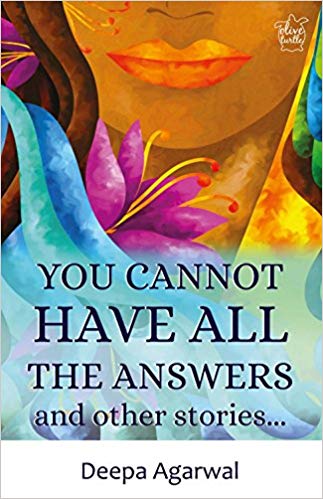Fifteen stories, all about women and girls, mostly in ordinary, everyday situations. What are their experiences? How do they react? How do they cope? What effect do these events have on the characters? These, in main, form the thrust of most of the stories, though there are interesting variations throughout. The topic of the tales range from nostalgia, to illegitimacy, to anger and defiance, to sadomasochism, to name a few. Add a dash of magic and whimsy to some stories and you have an interesting read.
Some of the tales can be classified as stories about young girls. In ‘The Back Verandah’ and ‘If the Earth Should Move’, two girls are caught up in a vortex of unfamiliar emotions. They have to battle with the dread of nymphomania, illegitimacy, anger and revenge, incest, all new, frightening emotions. The conclusion perplexes them, though they deal with it in their own way. (No spoiler alert!). ‘The Phalanx’ is a schoolgirl tale. Though it starts in the manner of Angela Brazil and her ilk, it has dark underpinnings of lesbianism, jealousy and vindictiveness. Anuradha, the heroine of ‘The Crossing’, physically overcomes her fear of heights when she crosses a rushing brook on a narrow makeshift bridge. In doing that, she crosses a psychological bridge and grows up, leaving her childhood anxieties and fears behind, while in ‘Doorways Without Doors’, Pragya responds to a childhood obsession and indulges in an act of great generosity.
A very interesting version of the same theme—childhood experiences influencing adult behaviour—is ‘The House of Cards’. The corporal punishment of the sisters in her convent followed by the unwarranted caning meted out by her father has left the nameless heroine with a taste for punishment, which she assuages by consistently losing in cards and other bizarre behaviour such as going to bed with an absolute stranger. In a milder form, Monisha Lal suffers from guilt as a result of being teasingly accused, as a child, of killing Mahatma Gandhi by her brother and his friend.

